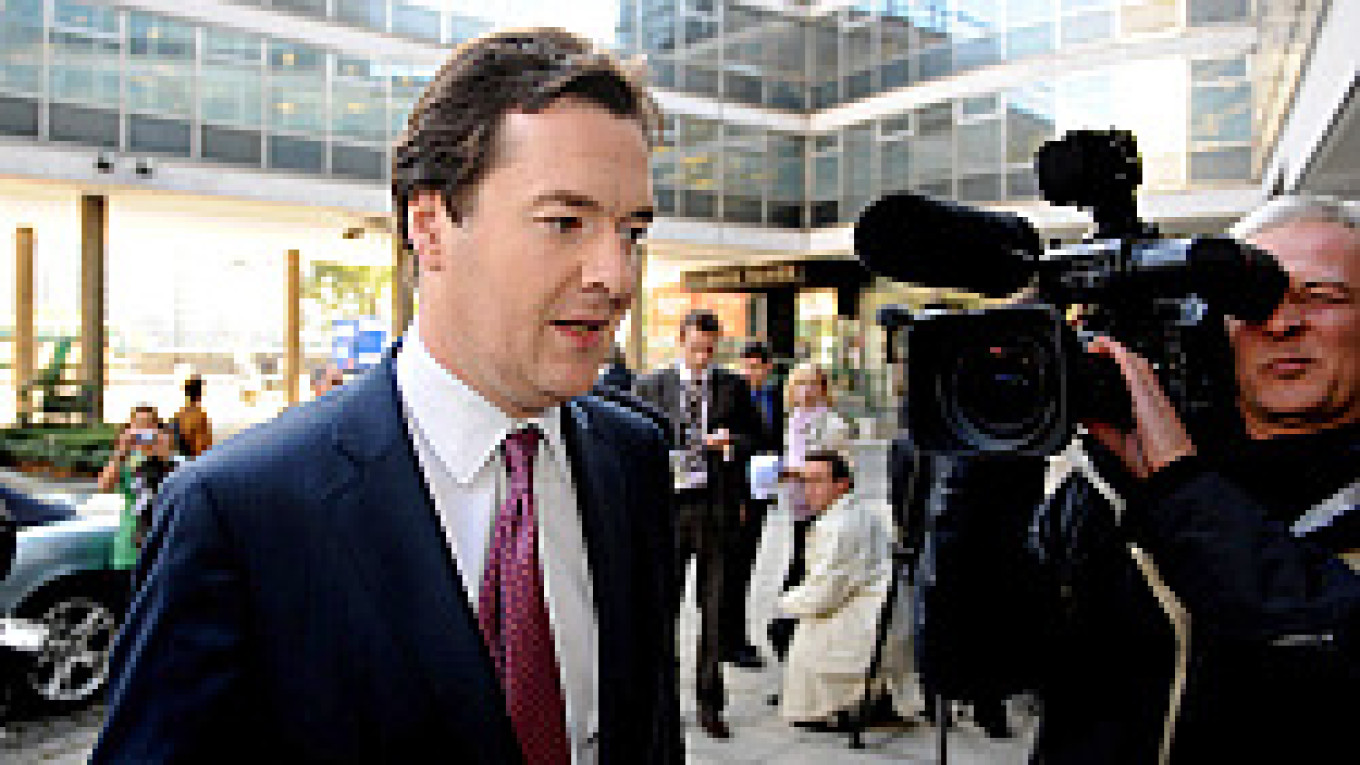In what seemed like a tit for tat of embarrassing disclosures, Rothschild said Tuesday that while Mandelson and Deripaska had been summer guests at his mansion on the Greek island of Corfu, two prominent politicians from Britain's Conservatives had visited Deripaska on his yacht to ask for money for their party.
British media reported last week that Mandelson had visited the yacht in August, sparking criticism because as European trade commissioner, Mandelson had been responsible for a decision to cut aluminum tariffs that had benefited Deripaska's United Company RusAl.
Rothschild, heir to a wealthy dynasty of bankers and co-chairman of the New York-based billion-dollar Atticus Capital hedge fund, said the Conservatives' shadow chancellor, George Osborne, had visited both his Corfu mansion and Deripaska on his boat to solicit a donation.
"He found the opportunity of meeting with Mr. Deripaska so good that he invited the Conservatives' fundraiser Andrew Feldman, who was staying nearby, to accompany him," Rothschild wrote in a letter to the Times of London, published on the paper's web site.
Rothschild said Feldman suggested channeling the donation through one of Deripaska's British companies, since Deripaska is not a British citizen. "Mr. Deripaska declined to make any donation," he said.
British law forbids donations by overseas residents or through a British company as proxy.
The Conservatives said in a statement that Rothschild's allegations were "completely untrue" but confirmed that Feldman and Osborne had been on Deripaska's boat.
Rather, the party said, it was Rothschild who told Feldman in September that Deripaska wanted to make a donation through one of his British companies. "The offer was not taken up," the statement said.
"A discussion took place about the prospect of a ?50,000 ($84,700) donation," the Times reported, citing Conservative sources.
A source close to Deripaska rejected the suggestion that the Russian had initiated the discussion of a donation. "He has never donated to any British political party and has no intention of doing so," the source said, speaking on condition of anonymity.
Rothschild, who is believed to have smoothed the way for Deripaska in London financial circles, indicated that he thought it was inappropriate for the Conservatives to have seized on the media reports about Mandelson's ties with Deripaska in hopes of political gain. "Perhaps in the future, it would be better if all involved accepted the age-old adage that private parties are just that," he wrote.
Rothschild's letter was a reaction to reports of a private conversation between Mandelson and Osborne in Corfu this summer, where Mandelson is said to have made unflattering comments about Prime Minister Gordon Brown, in whose Cabinet he now serves.
Mandelson is expected to lead a large business delegation to Moscow in the middle of next week, the British Embassy said Tuesday.
Asked whether he would meet Deripaska, an embassy spokesman said the details of the trip were still being worked out.
A Message from The Moscow Times:
Dear readers,
We are facing unprecedented challenges. Russia's Prosecutor General's Office has designated The Moscow Times as an "undesirable" organization, criminalizing our work and putting our staff at risk of prosecution. This follows our earlier unjust labeling as a "foreign agent."
These actions are direct attempts to silence independent journalism in Russia. The authorities claim our work "discredits the decisions of the Russian leadership." We see things differently: we strive to provide accurate, unbiased reporting on Russia.
We, the journalists of The Moscow Times, refuse to be silenced. But to continue our work, we need your help.
Your support, no matter how small, makes a world of difference. If you can, please support us monthly starting from just $2. It's quick to set up, and every contribution makes a significant impact.
By supporting The Moscow Times, you're defending open, independent journalism in the face of repression. Thank you for standing with us.
Remind me later.


